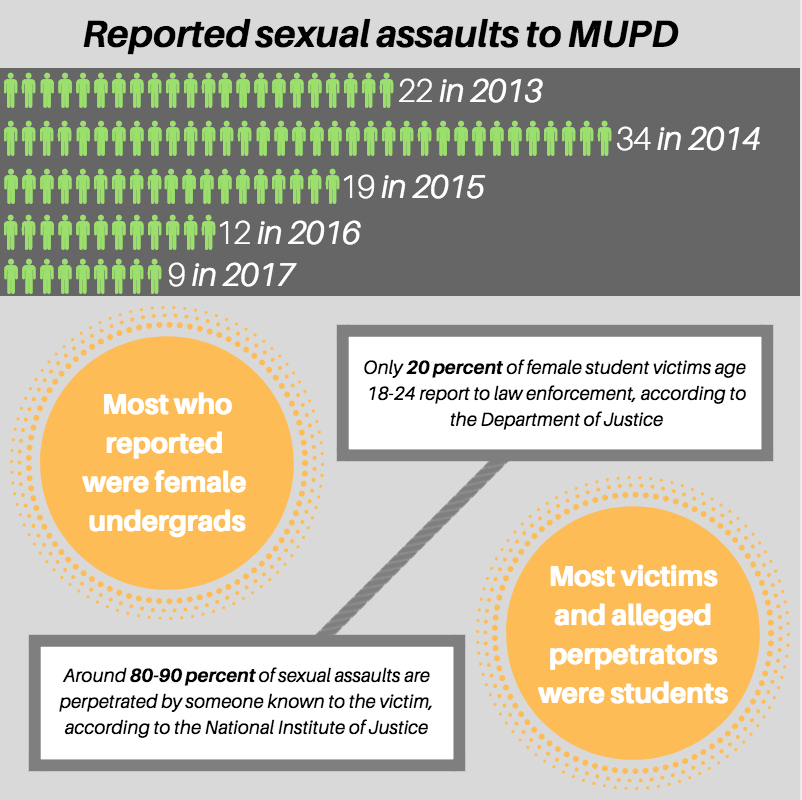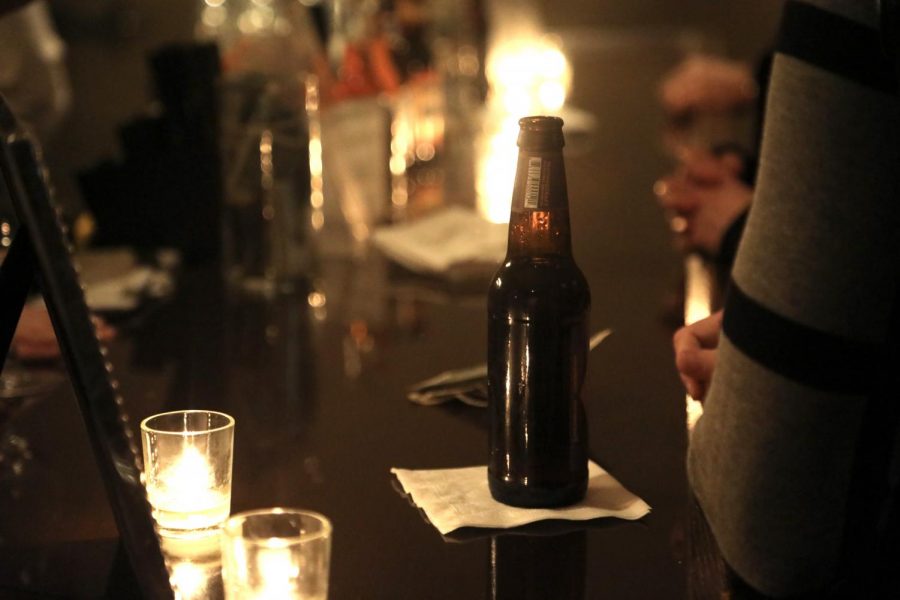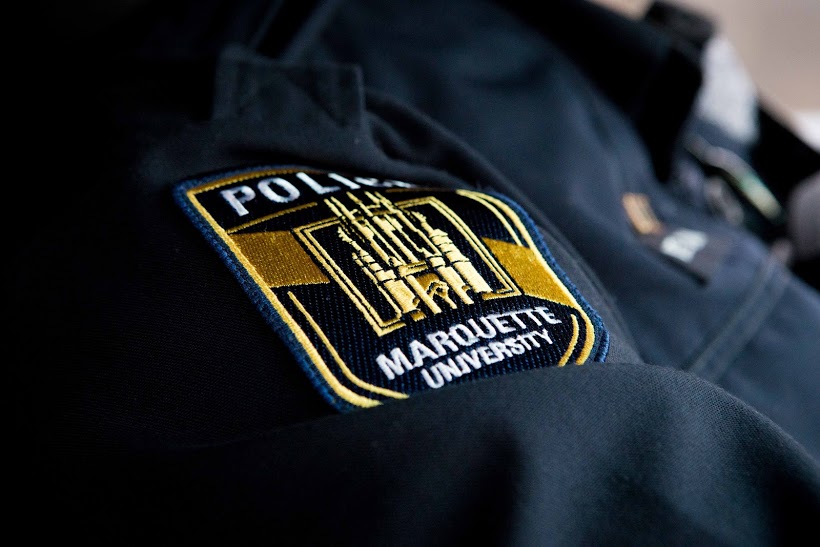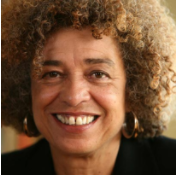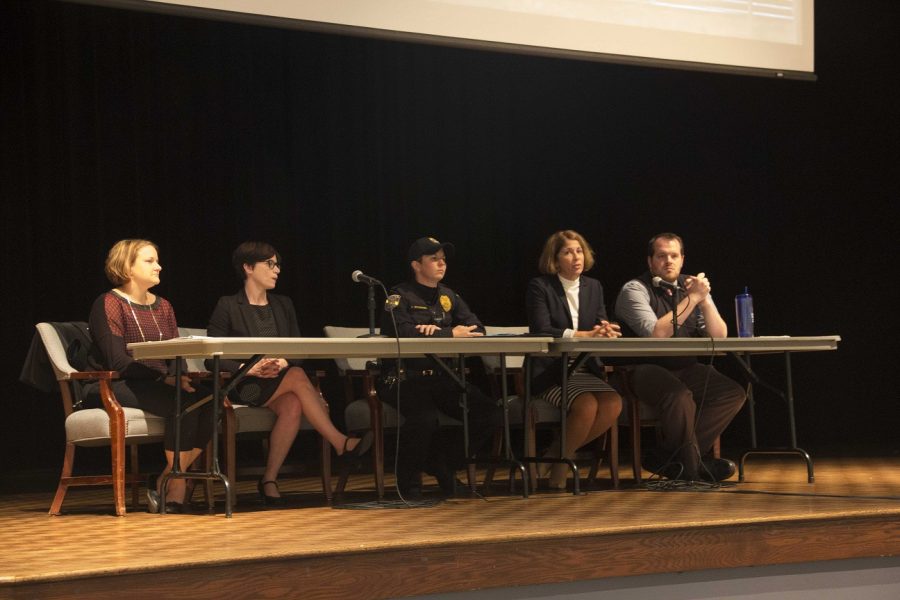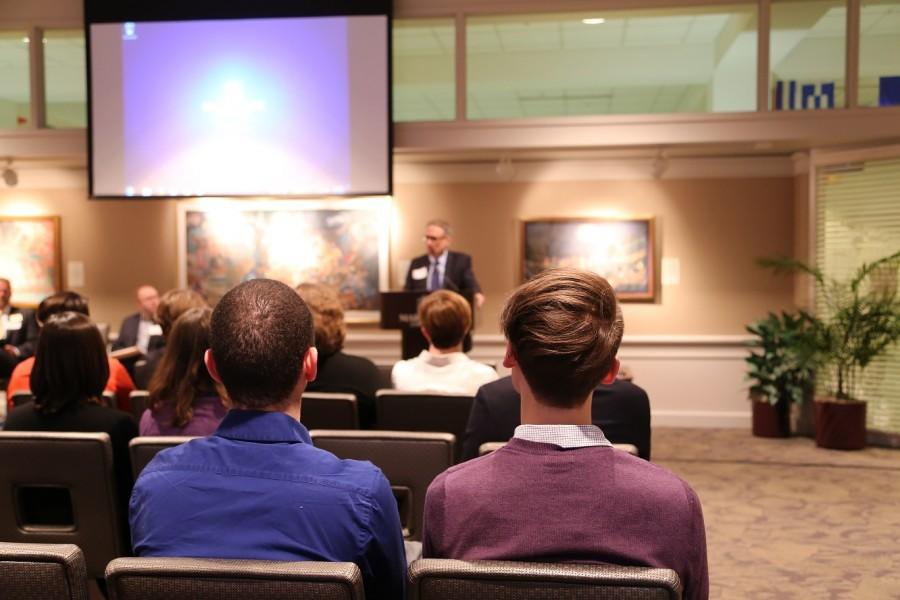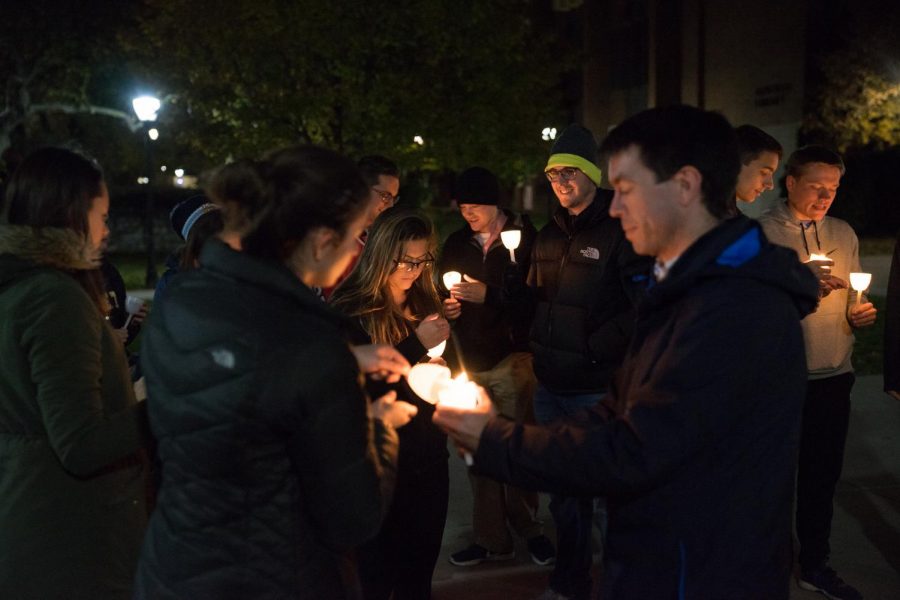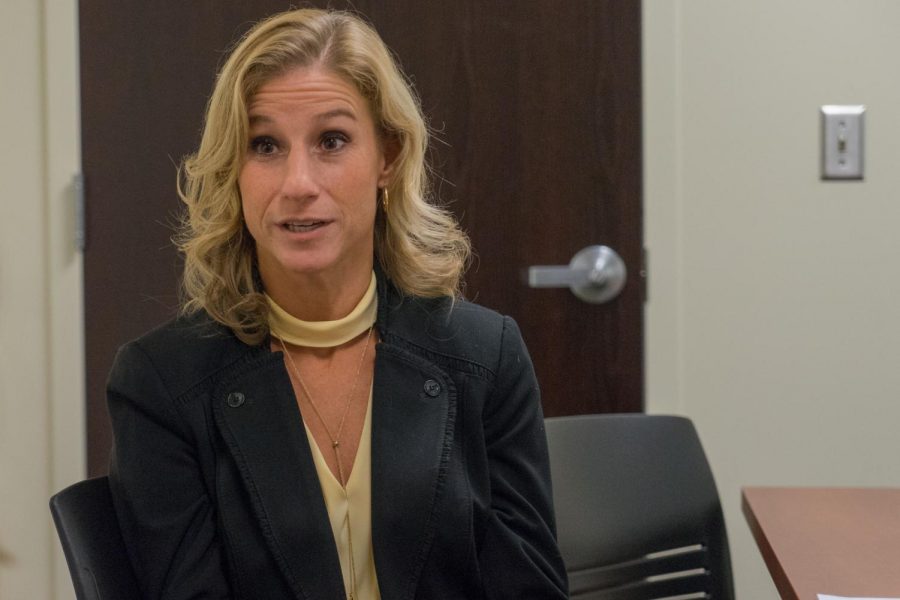Marquette University Police Department experienced its lowest number of reported sexual assaults in 2017 since becoming a public safety department in 2013.
Nine sexual assaults were reported to MUPD in 2017, according to data provided by university spokesperson Chris Jenkins. Sexual assault reports to MUPD have steadily declined since their peak of 34 in 2014. Twenty percent of female student victims age 18-24 report to law enforcement nationally, according to a 2014 Department of Justice report.
“Reporting is still extremely, extremely low, so I think we could estimate that many more sexual assaults happen that certainly aren’t reported,” said Heather Hlavka, an associate professor in the College of Arts & Sciences. “People don’t report because they think they’re not going to be believed, and now they have to go and be accused and have people asking them these questions over and over again. They just don’t want to do it. It’s not the first thing on their mind.”
Marquette’s decrease in sexual assault reports over the years is unique, said Sameena Mulla, an associate professor in the College of Arts & Sciences.
Reported sexual assaults by students and non-students ages 18-24 did not differ significantly each year from 1997 to 2013, according to a 2014 report from the Department of Justice.
“The number of sexual assaults reported on college campuses has not been going down, so it remains relatively steady,” she said.
Capt. Jeff Kranz of MUPD said most reports are from female undergraduates. Nationally, one in five women are sexually assaulted while in college and one in 16 men are sexually assaulted while in college, according to a 2007 study by the National Institute of Justice.
Mulla said both cisgender and transgender women are targeted more often than men.
“This has to do absolutely with patriarchy. It’s an old-timey notion, but it’s how power works within our society,” Mulla said. “It starts in childhood in terms of how we socialize young boys and girls to think about sex.”
Another trend in national data, reported in a 2007 study in the Journal of American College Health, found that more than 50 percent of college sexual assaults occur during early fall semester months.
“In our experience, the first part of the fall semester is of particular concern,” Kranz wrote in an email. “We know that this is a time where some students are experiencing a college environment and life away from home for the first time, and that may contribute to putting them at risk.”
Sexual violence prevention programming has been incorporated into the first few weeks of the school year to combat this trend, Kranz said.
Mulla said first-year students tend to be targeted more than others, often in their first semester before October arrives.
“They are vulnerable because they don’t have lots of friends yet, they don’t have strong social networks yet,” she said. “They’re also flattered by attention presumably from the students who are doing the assaulting.”
Kranz said that in the majority of sexual assault cases, victims are students. Most alleged perpetrators are students as well, he said.
In 2008, the National Institute of Justice found that approximately 85 to 90 percent of reported sexual assaults by college women are perpetrated by someone that the victims knows.
The likelihood of a victim knowing their perpetrator could contribute to low reporting rates, Hlavka said.
“When you talk to victims, the research shows that victims do not want their friend to go to jail,” Hlavka said. “I think that’s hard for our culture to get our heads around. We keep saying report and punish, and we have to start to understand that many, many victims do not want the perpetrators to be punished, at least by the state.”
At a midsize university like Marquette, Hlavka said it can be difficult for sexual assault victims to avoid their perpetrators.
“It’s particularly hard because this environment is so closed,” she said. “You’re going to see that person in your classes … perhaps they live in the dorm where the assault happened, they live on a floor with you, they live nearby, they’re friends with your friends.”
Mulla said it can be devastating for young people to experience a breach of trust among peers.
“It is that trust and that existing relationship that’s used to exploit the victim and gain access to the victim,” Mulla said. “Because we have for so long been invested in this imaginary myth of some stranger sexually assaulting us, it becomes very confusing and the blame becomes very internalized.”
Many times, both Hlavka and Mulla said, victims of sexual assault experience interruptions in their academic careers.
“The most common pattern post-assault is that it is the victim of the assault who is most likely to leave the university, who is most likely to have to take a leave of absence, whose grades suffer,” Mulla said.
Reporting to MUPD is one option for victims of sexual assault. If a student decides to disclose a sexual assault, they can report to MUPD, the Title IX office, a victim advocate, the Milwaukee Police Department or the Center for Gender and Sexualities Studies.
These options are non-confidential and staff members at these offices are required by law to file a report, according to Marquette’s Title IX policy.
“Empowering victims to make choices is an important part of our process,” Kranz said in an email. “We want victims to come forward through whichever avenue they feel most comfortable with.”
Kranz said MUPD’s log statistics do not include victims who initially came to MUPD and rerouted their report through the Title IX office or a victim advocate.
Mulla said Title IX adherence increased in 2011, which included initiation of mandated reporting by faculty, staff and students employed by universities that receive federal funding. Marquette, like many other universities, receives federal funding through financial aid options utilized by students.
“That may have had a chilling effect on reports if you know that the person who you’re going to for assistance has to tell,” Mulla said. “When students begin to know that (every incident has to be reported to law enforcement), they choose to withhold the report from faculty, staff and other students who are mandated reporters.”
Hlavka said it is important to realize that sexually assaulted students – particularly women – do not want to come forward to be labeled as victims. Many want to forget the sexual assault occurred, she said, and others will find individualized ways to achieve healing.
“(Being labeled as a victim) creates all these connotations in society that something is wrong with you, we have to heal you, you’re broken, you’re never going to get better – all those things are untrue, but women don’t want to do that,” she said. “They want to be independent and strong and do it all, and so the furthest thing they want to do is be labeled as someone who was a victim of sexual assault.”

